English is widely spoken in Nepal, especially in the major cities and tourist areas.
However, learning some basic Nepali phrases and words can be helpful for daily interactions and building relationships with locals.
Have the wonders of Tibet seduced you?
Are you thinking about moving to this breathtaking nation?
In this article, I will discuss the pros and cons of living in Nepal.
From the rich cultural heritage to the world-famous mountain climbing opportunities, there are many benefits to living in Nepal.
However, there are also a few challenges that you should consider and weigh against the benefits.
Whether you are a seasoned digital nomad or want to conquer Everest, this article will explain what you need to know about living in Nepal.
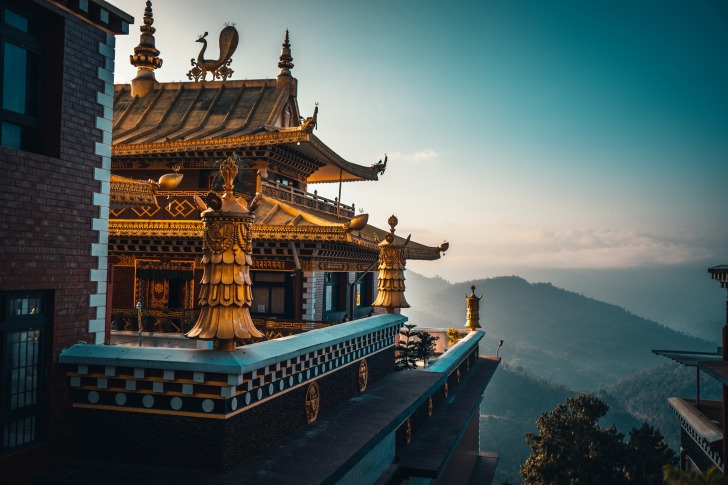
Contents
Pros of Living in Nepal
1. Low Crime Rates
There is almost no crime in this predominantly Buddhist country.
The population is very devout in Nepal.
Nepal is known to be a haven for female travelers.
There is still some pickpocketing and petty theft, especially in the capital.
However, there is almost no violent crime in this country.
2. Inexpensive Rent and Food
Living in Nepal can be extremely inexpensive due to the low cost of living compared to many western countries.
According to a recent study by Numbeo, the cost of living in Nepal is 64% cheaper than in the US.
In addition, rent is about 94% cheaper than in the states.
Food is plentiful and fresh in Nepal, and prices are extremely low.
However, prices do tend to go up during the high season.
3. Friendly People
Nepal’s people are warm, welcoming, and known for their friendly and open nature.
This culture of hospitality is deeply ingrained in Nepalese society.
It is common for locals to invite travelers into their homes for a meal or to spend the night.
Feel free to strike up a conversation with a Nepalese person – chances are, they will be more than happy to chat and show you around.
4. A Paradise for Outdoor Enthusiasts
Nepal is a top destination for outdoor sports enthusiasts due to its diverse and challenging terrain.
The region offers a variety of activities, such as white water rafting and hiking.
Trails allow hikers to explore the region’s breathtaking landscapes, including the highest peaks in the world.
Other outdoor sports, such as mountain biking and horseback riding, are available in Nepal.
Nepal is a dream destination for thrilling and unique outdoor adventures.
5. Strong Sense of Community
In Nepal, people generally have a strong sense of community.
People care about their neighbors and have strong family bonds.
People watch out for their neighbors and are quick to report suspicious activity.
This creates a sense of belonging and support that can be hard to find in other parts of the world.
6. Delicious Food
Nepalese food is a blend of Indian, Tibetan, and Chinese cuisine.
It is known for its spicy and flavorful dishes.
Popular dishes include dal bhat (a rice and lentil dish), momos (dumplings), and chow mein (noodles).
You can also find plenty of western food in the capital, and there are many different ethnic varieties of food you can try.
7. Moderate Weather
Nepal has a mild climate due to its location in the Himalayas, which helps to moderate temperatures.
Its high elevation means that temperatures are generally cooler than at lower elevations.
The weather in Nepal is also influenced by monsoons, which bring rainy seasons in the summer and dry seasons in the winter.
This mild climate makes it easy to live in Nepal, as temperatures are generally not too hot or too cold.
8. Amazing Road Trips
Nepal has many beautiful drives that allow you to take in the best of Nepal.
One popular road trip in Nepal is the drive from Kathmandu to Pokhara, which takes you through the Himalayas.
Other great drives in Nepal include the Kathmandu to Nagarkot route and the Kathmandu to Chitwan National Park route.
This epic drive lets you see some of the country’s diverse wildlife.
No matter your route, you’ll surely have a memorable and unique experience exploring Nepal by road.
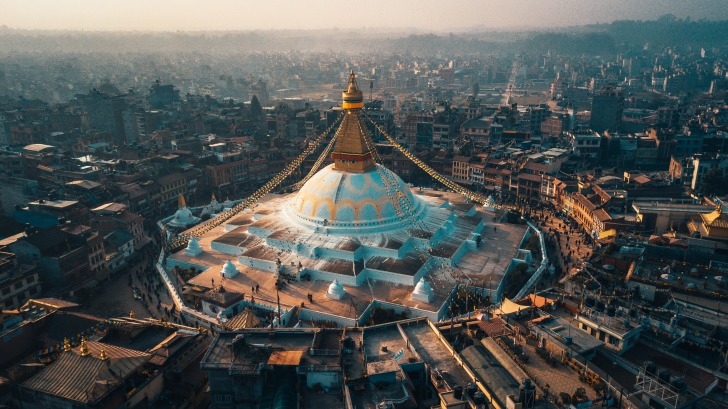
Cons Of Living in Nepal
1. Water Scarcity
The water resources in Nepal are coming under threat from rapid urbanization, pollution, and climate change.
Nepal has abundant water sources, such as rivers and underground aquifers, which are replenished by melting ice from the Himalayan mountains and rainfall.
However, the country is experiencing water shortages due to pollution and climate change.
Pollution from industries, agricultural chemicals, and untreated sewage can contaminate water sources and make them unfit.
Climate change is also causing irregular weather patterns.
This leads to droughts and floods that can disrupt water availability.
These factors combined have made it difficult for Nepal to meet the water needs of its population.
This has led to water scarcity and stress.
2. Earthquakes and Landslides
Earthquakes and landslides are natural disasters that can significantly impact Nepal’s quality of life.
Earthquakes can cause damage to roads, buildings, and utilities.
This can disrupt daily life and make it difficult for people to access necessities such as food, water, and medical care.
Landslides can also block roads and cause damage to infrastructure, making it difficult for people to travel and access resources.
In addition, earthquakes and landslides can result in loss of life and injury, devastatingly impacting communities and families.
3. High Inflation
Land prices in the cities have been increasing by 40% a year for the last few years.
This is very high inflation and can make buying a home more difficult.
High inflation rates can make living in Nepal difficult.
Buying a car in Nepal is very expensive because the government puts a 225% tax on all imported vehicles.
High inflation can also erode the value of your savings and investments.
4. Pollution and Poor Air Quality
Surprisingly for such a beautiful country, Nepal has poor air quality and high pollution levels.
The streets in Nepal are often filled with litter and other forms of pollution, which can create an unpleasant living environment.
This is especially bad in the cities.
In addition, the polluted air can cause respiratory and other health problems.
5. Altitude Sickness
With an average elevation of 4000 ft above sea level, Tibet can cause altitude sickness.
If you are not physically fit or have heart problems, you can have serious health issues because of the altitude.
Altitude sickness, also known as acute mountain sickness (AMS), is a condition that can occur when you travel to high altitudes too quickly.
Symptoms of AMS can include headache, nausea, vomiting, dizziness, fatigue, and difficulty sleeping.
These symptoms can make living in Nepal uncomfortable.
It can even make it difficult to perform everyday tasks and activities.
However, with time you will get over AMS and recover.
6. Dangerous Roads
Driving in Nepal can be dangerous due to several factors.
One of the main issues is that many drivers do not follow traffic laws, which can lead to accidents.
In addition, the roads in Nepal are often in bad shape.
They often lack safety features, such as guardrails or clear lane markings.
Additionally, the mountainous terrain of Nepal can make driving more challenging, especially if you are not experienced with curvy, steep roads.
7. Hard to Start a Business
Starting a business can be a challenging and time-consuming process in Nepal.
Foreign nationals must meet various legal and regulatory requirements.
One of the main challenges for foreign investors in Nepal is the need for a clear and consistent legal framework for business operations.
Additionally, there may be cultural and language barriers to overcome.
In Nepal, officials often need to be bribed to get anything done.
This can be very difficult for a foreigner to navigate.
8. Lack of Freedom of Expression
In a recent study of freedoms in different countries worldwide, Nepal got a very low score of 3.9 out of 10.
In Nepal, the lack of freedom of expression can restrict the ability of individuals to speak out against injustice.
It can also stifle creativity and open dialogue, essential for developing a healthy and thriving society.
Pros and Cons of Living in Nepal – Summary Table
| Pros of Living in Nepal | Cons Of Living in Nepal |
|---|---|
| 1. Low Crime Rates | 1. Water Scarcity |
| 2. Inexpensive Rent and Food | 2. Earthquakes and Landslides |
| 3. Friendly People | 3. High Inflation |
| 4. A Paradise for Outdoor Enthusiasts | 4. Pollution and Poor Air Quality |
| 5. Strong Sense of Community | 5. Altitude Sickness |
| 6. Delicious Food | 6. Dangerous Roads |
| 7. Moderate Weather | 7. Hard to Start a Business |
| 8. Amazing Road Trips | 8. Lack of Freedom of Expression |
Nepal Safety Overview
READ THE FULL REPORT: Nepal Safety Review
Safety Index: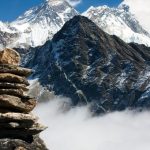
- OVERALL RISK: MEDIUM
- TRANSPORT & TAXIS RISK: HIGH
- PICKPOCKETS RISK: HIGH
- NATURAL DISASTERS RISK: MEDIUM
- MUGGING RISK: MEDIUM
- TERRORISM RISK: MEDIUM
- SCAMS RISK: MEDIUM
- WOMEN TRAVELERS RISK: MEDIUM
Frequently Asked Questions
Do people in Nepal speak English?
English is widely spoken in Nepal, especially in the major cities and tourist areas.
However, learning some basic Nepali phrases and words can be helpful for daily interactions and building relationships with locals.
Is it easy to access public transportation as a foreigner in Nepal?
Public transportation in Nepal can be limited, especially in rural areas.
In the major cities, buses serve as the main form of public transportation.
However, these can be crowded and chaotic.
You can also take taxis or even rent a car and driver.
Is it difficult to find housing in Nepal as a foreigner?
Finding housing in Nepal can be a challenge, especially in the major cities where demand is high.
So start your search early and be prepared to negotiate with landlords.
You may also try a real estate agent to help in your search.
They will often have the insider knowledge and necessary connections to get to the best places.
Is Nepal a good place to raise a family?
Nepal can be an excellent place to raise a family, with a strong sense of community.
There is also a lower cost of living compared to many other countries.
However, it is vital to consider the availability and quality of schools, healthcare, and other amenities in the specific area where you will be living.
There are great schools and hospitals in the bigger cities.
Rural areas are under-represented and often don’t have great medical care available.
How is the political climate in Nepal?
Nepal has a vibrant and active political climate.
The country is a federal democratic republic.
Political parties and movements are important to the country’s political landscape.
However, Nepal has a history of political instability and conflict.
It is important to stay informed and aware of current events and developments.
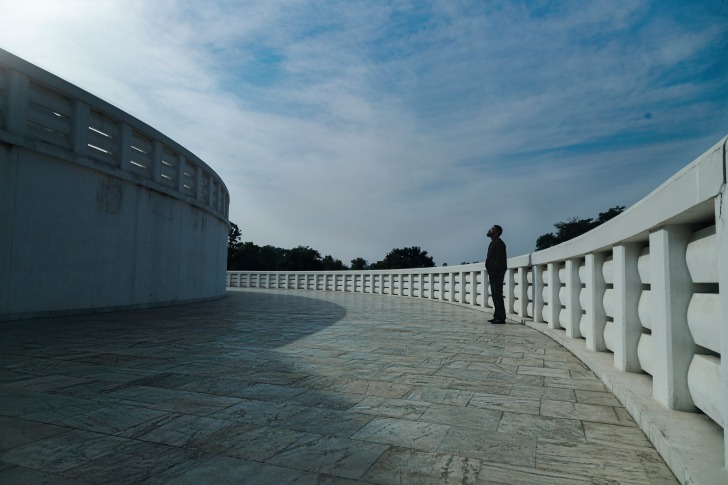
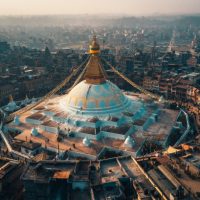
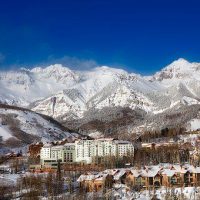
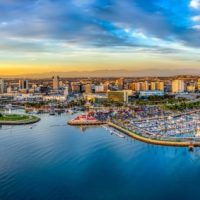
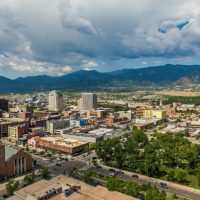
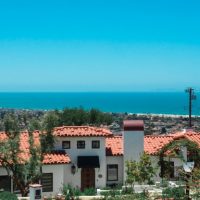
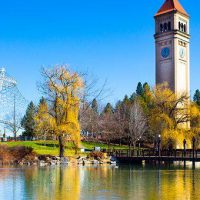





Living in Nepal is a unique experience filled with breathtaking landscapes and rich cultural heritage, but it also comes with challenges such as limited infrastructure and political instability.